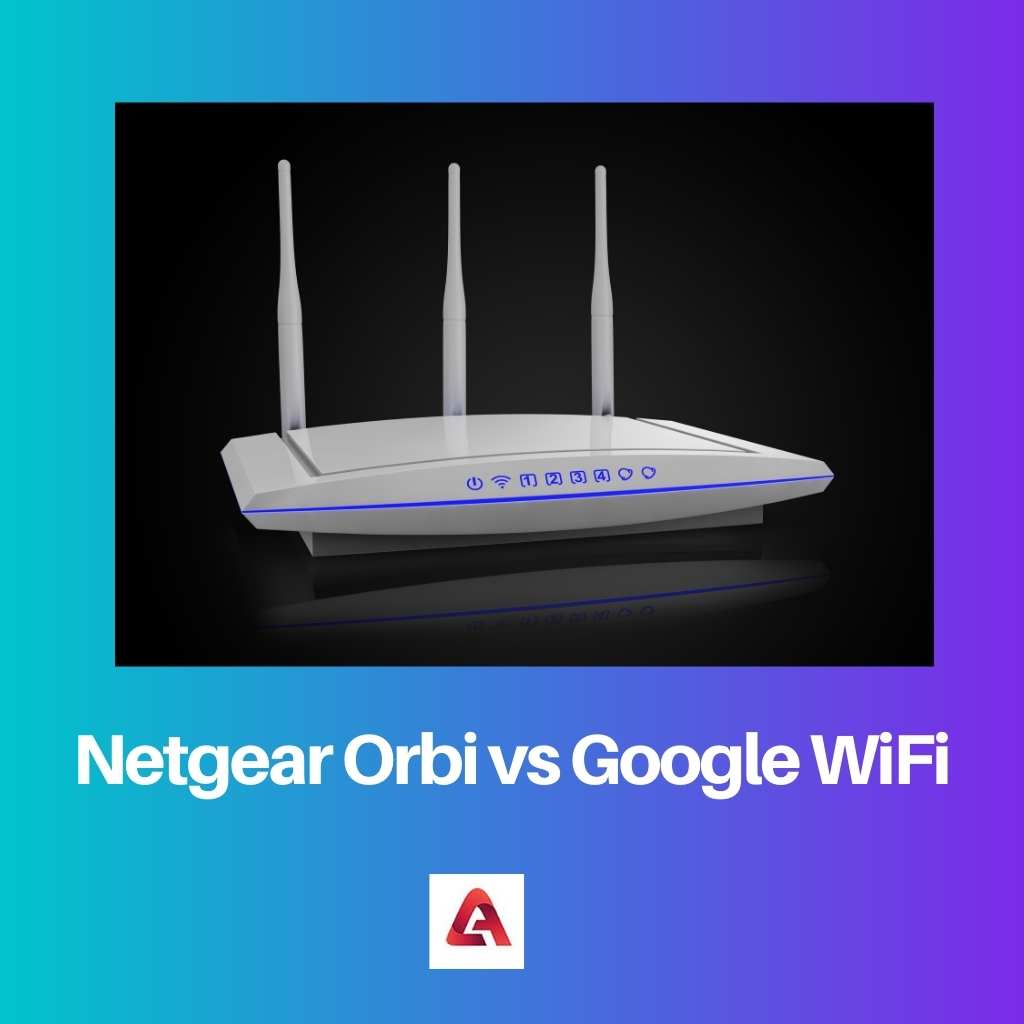Not all routers are made perfect when it comes to offering fast and stable WiFi signals. Even though the new WiFi’s are causing numerous transitions to the new consumer networking market, Google WiFi and Netgear Orbi remain two of the most popular WiFi systems, regardless of their market age.
Both the WiFi technologies have had a significant impact on the design, usability, and functionality. However, there are some notable differences between them. Let’s see if we can make a comparison between them.
Key Takeaways
- Netgear Orbi offers faster internet speeds and wider coverage than Google WiFi.
- Netgear Orbi uses a dedicated backhaul channel to ensure uninterrupted connectivity, while Google WiFi relies on a mesh network.
- Google WiFi is easier to set up and manage than Netgear Orbi.
Netgear Orbi vs Google WiFi
Netgear Orbi functions on a tri-band system, making it faster and more flexible. Google wifi has a dual-band design. Netgear Orbi also deploys 2 units, unlike Google wifi which deploys three. In their minimalistic designs, netgear Orbi has a better venting system than Google wifi.

Netgear Orbi is tri-band wifi that runs an Orbi wifi system that dedicates a 1.7Gbps 5GHz channel of the tri-band for expanding Internet speeds to Orbi satellites.
This frees up another two WiFi bands for use by all connected devices around the whole residence. The Netgear Orbi WiFi System will deliver both consistent WiFi service and optimal Internet speed throughout the place because of tri-band WiFi.
Google WiFi’s concept is to supply several devices that can connect to provide greater wifi connectivity throughout any residence.
Many of the network devices are identical small little white cylinder in router form that connects to DSL or cable modem as usual, and the others are diligently positioned throughout any residence, securely joining to this initial device and providing sufficient Wi-Fi coverage in the neighborhood also.
Comparison Table
| Parameters of Comparison | Netgear Orbi | Google WiFi |
|---|---|---|
| Network Coverage | Up to 7.5000 sq. ft. | Between 1,500 – 4,500 sq. ft. |
| Speed rating (per unit) | AC3000 | AC1200 |
| WiFi setup | Tri-band | Dual-band |
| Channels | Two 5GHz and one 2.4 GHz | 5GHz and 2.4 GHz |
| No. of wired Gigabit Ethernet ports per unit | 4 | 2 |
What is Netgear Orbi?
Netgear Orbi has a proven track record of delivering internet connectivity equipment, and the company has been around long before the advent of “smart WiFi router” was coined.
The Netgear Orbi is the company’s take on intelligent mesh routers, with the ordinary Orbi geared toward household use.
One primary router and one satellite unit make up the Netgear Orbi kit. The router and the satellite devices have remarkably similar appearances that are tall white plastic cabinets with gentle slopes.
Because of their height and relative lightness, the Orbi units are prone to tipping over. One of the main advantages of the Orbi system is that the router and satellites collaborate to create a mesh network that can reach far further than a standard gateway.
Netgear Orbi has included a small light tape on the back of the container to show the stability of the WiFi connection. A blue light will appear if the device is performing correctly.
If the system has dropped wifi connection, then that will show a continuous purple light, and if it is restarting, it will exhibit a flickering bright white flash.
In exchange for elegance and beauty, this light system sacrifices a tiny degree of utility.

What is Google WiFi?
Google hasn’t been in the router business for so long, that doesn’t imply they’re novices. Not at all. Indeed.
The Google WiFi is one of the best and more capable smart routers, and it’s also reasonably priced, making it a much more viable alternative for several families.
The Google WiFi system’s actions take the basic brand to the next level. Google’s nodes have the same slick white finish as the Orbi units, but they’re slimmer and spherical, allowing them considerably easier to position in the residence.
Google, on the other hand, neglected to add active airflow within those units. Each Google WiFi node is similar to all the others, and any of them might act as the primary unit.
Google WiFi’s color scheme is straightforward to comprehend. Its device’s Led indicator is exceptionally well-designed aesthetically.
Every node is split up into two vertical halves, leaving a small slit all-around spherical unit’s center. The indicator light is visible through in this hole.
The white light will appear when everything is functioning correctly. A red light will flash if there is an issue with the internet connection.
The indicator will turn blue whenever the gadget returns to its factory default. and at last, the LED illuminates orange whenever the network connection is disconnected.

Main Differences Between Netgear Orbi and Google Wifi
- Netgear Orbi has a tri-band arrangement of two 5GHz and one 2.4 GHz channel giving it more capacity for device connection, whereas Google WiFi is a dual-band wireless network between 5 GHz and 2.4 GHz channels.
- Netgear Orbi is equipped with a strong 710 MHz quad-core processor, whereas Google WiFi has a 4 GB flash drive and 512 MB of RAM.
- Netgear Orbi has a USB port, whereas Google WiFi doesn’t have one.
- Netgear Orbi does not require a cloud service to function, whereas the Google WiFi does.
- For convenient remote access, Netgear Orbi includes VPN termination capability, however, Google WiFi does not.
- For setup, Netgear Orbi requires a phone number and an email address, whereas Google WiFi does not.
- Netgear Orbi comes with pre-paid units for simple installation, however Google WiFi does not.
